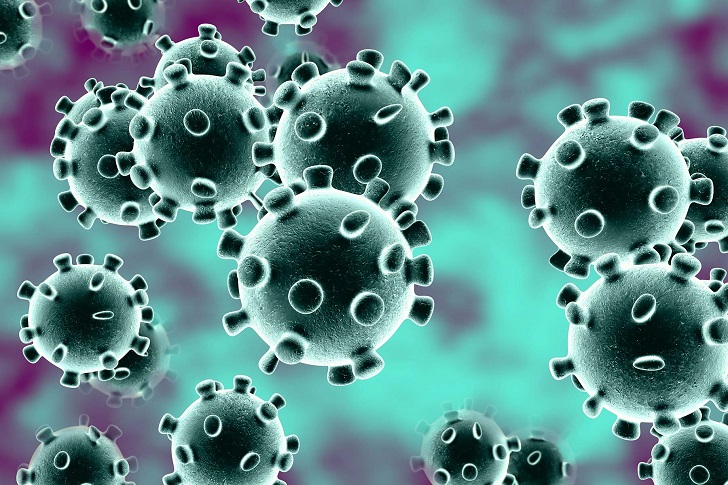7 Facts About the Preventive Measures, Supportive Care, and Possible Treatments of Coronavirus

Information surrounding COVID-19 is as fast-changing as the virus itself, with new information seemingly coming in by the day that changes perspectives and treatments. However, there are certain best practices that can be adapted to make sure that you and your loved ones are safe. These are seven such facts:
7. Is there a Vaccine for Coronavirus?
First things first: as of yet, there is no working vaccination against coronavirus! All is not lost, however, with more than 100 possible vaccines going into a clinical trial, it is possible that at least one might be the solution the world so sorely needs.
But even if a vaccine were to show promise, there is no way to fast-track the vaccine into people’s hands: there are still standards to be kept about its safety, viability, efficacy, and efficiency.
Rough estimates project the availability of a vaccine to be somewhere from 12 to 18 months.
6. Self-Isolation and Self-Treatment in Mild Cases
Even by doing all you can do to spare yourself and those closest to you from contracting the pathogen, it is at least likely that you are bound to contract the coronavirus sometime.
If that happens to pass, it is incumbent on you to make sure that you do not be the host that spreads the disease to other people.
If you have symptoms like a cough, cold, or other symptoms emblematic of COVID-19, the first thing you should do is seek medical intervention. If you know for sure that you have the virus, and your symptoms are not so severe that you need to be hospitalized, you should self-isolate.
It is important that the virus not find its way to people closest to you through you. Caring for yourself during this time will require fortitude and optimism. It is crucial to maintain proper hygiene. Flu medication can help alleviate symptoms and provide relief.
5. Caring for the Most-At-Risk of Coronavirus Fatality
The people most-at-risk of coronavirus fatality are chiefly people over 50, people with a compromised immune system, and people with breathing difficulties. The best way to care for such people should they contract the virus would be to seek medical attention immediately.
They would need to be fitted with ventilators and monitored closely at all times. In such a case, immediate medical intervention could be the best — of the only — course of action.
4. Coronavirus: Knowing Fact from Fiction
The fact that COVID-19 should happen at the time it did is that we have one of the most powerful tools of the modern age at our disposal: the Internet.
While it is not hard to imagine the lives that could have been saved if there was a thing as the Internet at the time of the Spanish Flu pandemic or the Bubonic Plague, having the Internet at our convenience has proved to be a double-edged sword if anything else.
For all the good it has done in providing the relevant information and news about COVID-19. the Internet has also helped spread misinformation and perpetuate lies and myths about coronavirus. Hence why it is crucial to cherry-pick information from reputable and verified sources. Discretion and common sense are also powerful tools in knowing fact from fiction.
3. Maintaining Proper Hygeine
In these trying times, maintaining personal hygiene is tantamount to saving one’s life. Coronavirus is a highly-transmissible disease that spreads via respiratory droplets produced when coughing, speaking, and spitting. The virus can also spread via contaminated surfaces and according to researchers, the virus can stay alive in the air for about 72 hours.
Therefore, it is recommended to adopt healthier hygiene. Guidelines suggest washing hands with soap and water or an alcohol-based hand rub, avoiding touching parts of one’s face, exercising, avoiding cigarettes and alcohol, etc.
2. Possible Medications to Ail Mild Symptoms
While there is no vaccine against coronavirus, mild symptoms can be alleviated by administering over-the-counter cold/flu medication.
Paracetamol can be taken to help with the fever, and some doctors recommend non-steroidal anti-inflammatory drugs like Ibuprofen for symptoms.
1. What You Can Do: Social Distancing and Personal Responsibility
Of course, the possibility of a vaccine is still a ways away, which is why the old adage, “Prevention is better than cure” rings so true, especially now. While there is not much we can do in terms of developing a vaccine, what we can do is to adhere to guidelines and protocols set by experts to help curb the spread of the disease.
Words like “social distancing” and “flattening the curve” might seem like buzzwords more than anything else, but is imperative that people be responsible during these trying times. What people can do as individuals are follow community guidelines about keeping at least a 6-foot distance from other people, staying indoors unless absolutely necessary, and maintaining personal hygeine.
By simply following the protocol. the spread of the disease can be stemmed so that healthcare systems do not feel overburdened.